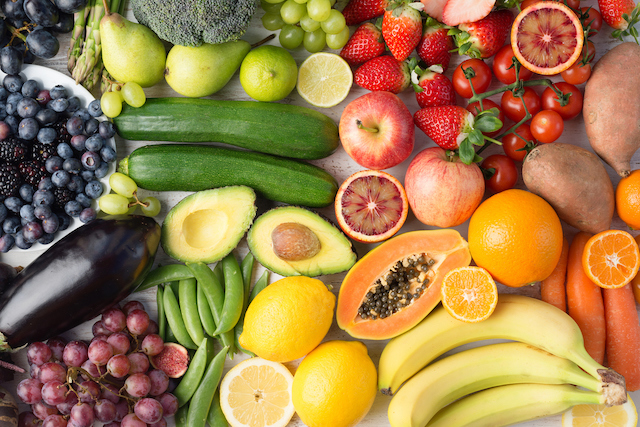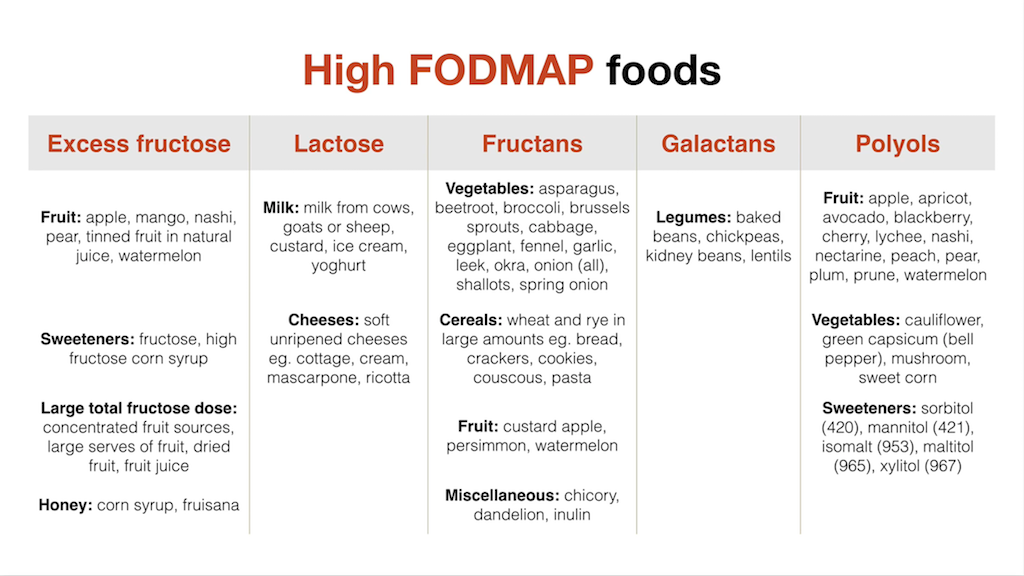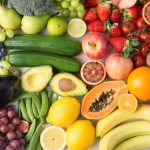
In a previous article I discussed what your microbiome is, why it’s important, and how a disrupted microbiome can cause irritable bowel syndrome. In this article we will discuss how to rebuild your gut microbiome with prebiotics.
What are prebiotics?
Prebiotics are foods and supplements which feed your good gut microorganisms (microbiota) and allow them to grow and thrive. Another name for prebiotics are fermentable fibre.
Prebiotic Foods and Supplements
Prebiotic foods include vegetables, fruits, legumes, starchy tubers, nuts, and seeds. Eating a lot of fermentable fibre and a lot of different kinds of fermentable fibre gives you a healthier and diverse microbiome. Remember having a healthy and diverse microbiome provides you with more nutrients, more energy, protects you from gut conditions, and is important for proper brain and nerve function. (1, 2 3)
Having a healthy and diverse microbiome provides you with more nutrients, more energy, protects you from gut conditions, and is important for proper brain and nerve function.
It’s likely our Paleolithic ancestors of over 10,000 years ago ate more fermentable fibre than we do today. Studies of the modern day hunters and gatherers like the Hadza tribe eat an average of 100 grams or more of fibre per day. (Sonnenberg) Most Canadians and Americans are only getting 12-19 grams of fibre per day. (4, 5). This becomes important because there is a link between disrupted microbiome and chronic illness. (6, 7) I wrote about these implications in my last article called ‘Disrupted Microbiome Can Cause Irritable Bowel Syndrome’.
Chronic illness has been on the rise since the start of the agricultural revolution. (8) Our Paleolithic ancestors and modern day hunter and gatherers were and are more robust than modern day humans in industrialized nations. Chronic illness is rare or non-non-existent in these two groups of hunters and gatherers. (9, 10)
It can be difficult for us in the modern world to get enough fibre. The variety of wild fibrous plants and tubers just aren’t as available as they once used to be. So prebiotic supplements can be an option to fill this void. So what prebiotic foods and supplements in particular can help increase the diversity of our gut microbiome?
Soluble fibres
People who have irritable bowel syndrome often have difficulty digesting insoluble fibres. Soluble fibres tend be easier on the gut and more easily tolerated by people who have gut issues.
Vegetables that are higher in soluble fibres versus insolubles fibres are as follows:
- starchy tubers (potatoes, sweet potatoes, yams)
- winter squash
- summer squash
- carrots
- rutabaga
- turnips
- parsnips
- yuca or cassava root
- taro or dasheen
- beets
- plantains (fruit)
Supplements high in soluble fibre include:
- Partially Hydrolyzed Guar Gum
- glucomannan (konjac root)
- acacia
- psyllium husk
- modified citrus pectin
Insoluble fibres
Many vegetables, fruits, nuts and seeds are high in insoluble fibres. Insoluble fibres are the hard fibrous part that humans can’t digest. However, they feed our good bacteria in our gut so they’re important. Many of them are FODMAPs and can be very irritating for people that have irritable bowel syndrome or are intolerant to FODMAPs. In order for people with gut issues to tolerate insoluble fibres, they will likely need to investigate deeper underlying problems with their gut. Here is a list of vegetables high in insoluble fibre followed by a diagram listing out FODMAPs:
- green leafy vegetables
- leeks
- garlic
- cucumbers
- bok choy
- celery
- eggplant
- bell peppers
- green beans
- sugar snap peas and whole peas
- cabbage
- brussel sprouts
- cauliflower
- broccoli
- kernel corn

Supplements high in insoluble fibre include:
- larch arabinogalactan
- beta-glucan
- inulin and oligosaccharide (FOS)
- galacooligosaccharide (GOS)
Resistant starch
Resistant starch is a type of starch that does not get digested by the stomach or small intestine. It “resists” digestion and reaches the large intestine (the colon) intact for the good bacteria to feed off of it.
The best way to get resistant starch is to cook and cool the following foods:
- green plantain
- green bananas
- potatoes
- white parboiled rice
- lentils
Supplements with resistant starch include the following and can be added to COOL drinks like smoothies:
- Gluten-free unmodified potato starch—Bob’s Red Mill is a good brand (2 to 4 TBSPs/ days BUT starting slowly at 1/4 – 1/2 tsp and maybe less depending on the severity)
- green banana flour
- green plantain flour.
By no means will you be able to consume all of these types of prebiotic fibres all in one day. The best approach would be to rotate them as much as you can. A variety of prebiotics builds a diverse healthy gut microbiome.
This article has some good tips on how to prepare vegetables so you can tolerate them better if that is an issue for you.
How long does it take to rebuild your gut microbiome?
Studies show microbiome can be changed within days and weeks. (11) This is dependant on many factors. Whether it takes days, weeks, or months it is recommended you always get a variety of prebiotics to rebuild and MAINTAIN a healthy and diverse gut microbiome.


Leave a Reply